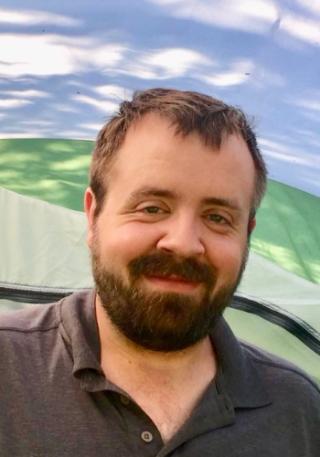Benjamin Clark Joins the School of Theatre, Television, and Film

The School of Theatre, Television, and Film will be adding a new member to their faculty this fall. Benjamin Clark will serve as assistant professor of technical direction in fall 2021.
Originally from Connecticut, Clark was a project manager and technical designer at ShowMotion, a scenic studio in the Broadway market. His work there included theatrical projects such as Mean Girls (NYC and National Tour), the revival of Angels in America and Tootsie. His work also includes architectural and commercial projects, such as YouTube’s Brandcast at Radio City Music Hall.
Clark received his master’s in fine arts (MFA) from the Yale School of Drama’s Technical Design & Production program. Upon graduation he received the Edward Cole Award and the Ben Sammler Award from the School of Drama as well as the KM Fabrics Technical Production Award from The United States Institute for Theatre Technology (USITT).
His baccalaureates degree in history is from Harvard College, where he earned the Louise Donovan award for contributions made “behind the scenes” to the arts.
Earlier in Clark’s career, he was the associate technical director at ArtsEmerson, where they brought contemporary world theater from more than a dozen countries across five continents to six venues in Boston.
He continues to work as an independent technical designer for a variety of theaters and scenic studios including past projects with the La Jolla Playhouse, the Goodman Theatre, and Empire Technical Fabrication.
Clark commends San Diego State University's commitment to innovation.
“As a whole, the university is known as a historic institution that does not rest on its laurels. Take, for example, the STAR Lab in the basement of the Don Powell Theater,” Clark says.
“In my field, the STAR Lab is but one of a small handful of such facilities in the country.”
Clark is excited to join SDSU and is looking forward to when theatre can resume again.
“I look forward to contributing my own research and writings to the field, to training the next generation of students in modern practices while maintaining a historic perspective, and to working with and getting to know my colleagues around the campus,” Clark says.
The content within this article has been edited by Lizbeth Persons.
